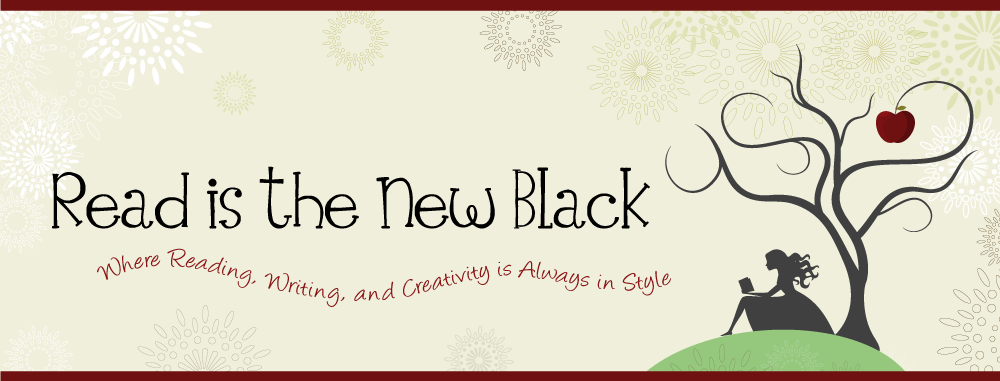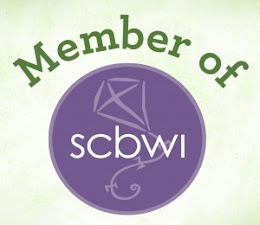It’s been awhile since I posted an interview. This month,
I bring to you Dianne Salerni, author of THE EIGHTH DAY series (HarperCollins) and a number of
other books. I’ve been following
Dianne’s blog for some time, so I’m stoked to have her here on my blog. Dianne
is a native and resident of Pennsylvania. She is an alumna of the University of
Delaware, where she fondly remembers calling her mother to come pick her up when she didn’t feel
like eating at the dining hall. Having studied Elementary and Special Education
at UD, and then arming herself with a Masters in Language Arts Education from
the University of Pennsylvania, Dianne taught fifth grade for 25 years. Imagine
all the juicy story ideas she must’ve gathered from observing this age group!
Dianne retired early and now writes full time.

THE EIGHTH DAY is about a 13 year-old orphan named Jax
who discovers a secret extra day of the week. On this day, it appears at first
glance that the rest of the people in the world have gone missing. But Jax
learns soon enough that people do exist here, and he gets caught in an ongoing
war between two groups of people.
When
I first heard about THE EIGHTH DAY from your blog, I daydreamed about what I
would do if I discovered there was an eighth day where seemingly, only I
existed. I decided I could spend that day working on my novel and catching up
on pleasure reading. What would you do on an eighth day where only you
existed?
If I had a secret day all to myself, I’d spend it
visiting places that are normally so crowded you can’t enjoy them properly. Maybe not Disney World, since no one would be
there to operate the rides. But I’m recalling my visit to Versailles two
summers ago when I was pushed and shoved and trampled by the crowd – and how
after that experience I didn’t even bother trying the Louvre. Those are two
places I would love to see with NOBODY else there!
Jax,
your male protagonist, reminds me of many boys I know. What was your process
exploring a boy’s POV in your writing?
This is where all my years of teaching fifth grade helped
a lot! I’ve spent a lot of time around boys about Jax’s age. I know how they
talk, how they think, and how they try to wiggle out of trouble. There’s one
particular spot in THE EIGHTH DAY where Jax lies to his guardian, Riley, about
something important. Some adult readers have questioned whether it was
realistic for him to do so, given the stakes in that situation. But no tween
reader has ever questioned it! They
know as well as this teacher-turned-author does that most boys in that
situation would lie, trying to keep
themselves out of trouble above all else.
I thought it was clever how you were able to
weave Arthurian legend into your story. How was it like to take an existing
story and put your own creative spin on it?
I loved taking the legends and stories and twisting
them into something different. I ended up borrowing not just from Arthurian
legend (for the Transitioners) but also from general Celtic mythology (for the
Kin). This connection continues in the other books of the series, and
occasionally I find something in the legends that makes a surprising parallel
with what I’ve already written. For instance, when I named the race of people
trapped in the eighth day “the Kin,” it was originally only a place-holder
name, until I thought of something different. But I never did think of a better
name, and the book went to print with Evangeline and her race called the Kin.
Much, much later, I was researching Celtic legends for
Book 3, and I came across the Tuatha de
Danann, a legendary race of people gifted in magical powers who arrived in
the British isles in ancient times and ruled there awhile. Eventually they were
defeated and driven away to a secret, hidden kingdom where they lived extended
lives and were never seen by humans again. Kind of like the Kin in my story.
But here’s the part that was just a little freaky. Tuatha de Danann translates as the people, the nation, the tribe … or …
the kin.
Can
you tell me what is coming up for THE EIGHTH DAY series?
THE EIGHTH DAY is the first book of a 3-book deal, but
there is an option clause for two more. When HarperCollins acquired THE EIGHTH
DAY, I was asked to plan out 5 books, but to make sure the series could end on
Book 3 if necessary. That seemed a pretty daunting task at first … and then I
figured out how to do it. (Yay!)
In Book 2, THE INQUISITOR’S MARK, Jax – an orphan –
discovers that his late father lied to him about who they were. Jax actually
has an extensive family, including an uncle and an aunt, grandparents, and many
cousins. Unfortunately, they happen to be members of the Dulac clan, the
organized crime family responsible for killing everyone in Riley’s family.
These people are anxious to meet Jax and give him a home. But they also want
him to turn Evangeline over to their custody – and when they discover Riley
escaped their previous assassination attempt, they want to fix that mistake as
soon as possible.
In Book 3, THE MORRIGAN’S CURSE, a prison break at the
ancient Welsh fortress of Oeth-Anoeth results in the escape of the Llyrs, a Kin
family with such a powerful talent for working with weather, they were once
treated like weather gods. Now free after centuries of imprisonment, they seek
to break the Eighth Day Spell, and they have a secret weapon: Evangeline’s
little sister Addie. Jax is determined to rescue her … but it seems like Addie
doesn’t want to be rescued. She’s
chosen her side of the conflict: the wrong one.
Any
upcoming projects you’d like to share about?
I’m afraid I can’t talk about some of my projects, but I
can tell you that I’m working on a synopsis and sample chapters as part of my
proposal for the optioned books in the Eighth Day series. Keep your fingers
crossed for me!
Which
books/authors did you like to read while you were growing up?
My first love was mysteries,
and I quickly passed beyond the books meant for children (Nancy Drew, The Three
Investigators) and on to my mother’s collection of Mary Stewart, Mary Roberts
Rinehart, and Virginia Coffman. I also loved ghost tales and stories about
madness and the bizarre. Think Shirley Jackson. Later on, in high school, I
fell in love with fantasy and science fiction, tearing through books by Roger
Zelazny, C.J. Cherryh, and Douglas Adams.
I think my writing as an adult, from WE HEAR THE DEAD and
THE CAGED GRAVES to the Eighth Day series (not to mention various manuscripts
that are, as yet, unpublished) shows the influence of all those authors! I
don’t know if you are what you eat, but I believe you write what you read!
 Lois Duncan's DAUGHTERS OF EVE is one of my
favorite YA reads. It’s also one of those rare books I could read more than
once and with each reading, I can gain a new insight about what I think Lois is trying
to say. (Side note: I just skimmed through the “modernized” version of the book.
I’ve said it before, and I’ll say it again: Updating a book is unnecessary.
Giving a classic a makeover is like plugging a helicopter into Van Gogh’s
Starry Night.)
Lois Duncan's DAUGHTERS OF EVE is one of my
favorite YA reads. It’s also one of those rare books I could read more than
once and with each reading, I can gain a new insight about what I think Lois is trying
to say. (Side note: I just skimmed through the “modernized” version of the book.
I’ve said it before, and I’ll say it again: Updating a book is unnecessary.
Giving a classic a makeover is like plugging a helicopter into Van Gogh’s
Starry Night.)  The original book was published in 1979 and
its portrait of mob mentality still rings true today. I would even go as far as to say that reading DAUGHTERS OF EVE in my
youth helped cultivate this tiny bit of self-awareness: I can wholeheartedly support
a cause but not be a fan of an Irene-like individual or entity that has
postured themselves as a leader of the movement. I can also be in disagreement
with the approach followers of a like-minded cause take to handle non-supporters when it involves bullying or hypocrisy masked as “standing up for the right
thing.”
The original book was published in 1979 and
its portrait of mob mentality still rings true today. I would even go as far as to say that reading DAUGHTERS OF EVE in my
youth helped cultivate this tiny bit of self-awareness: I can wholeheartedly support
a cause but not be a fan of an Irene-like individual or entity that has
postured themselves as a leader of the movement. I can also be in disagreement
with the approach followers of a like-minded cause take to handle non-supporters when it involves bullying or hypocrisy masked as “standing up for the right
thing.” 






